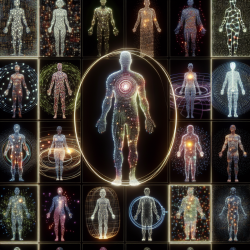Introduction
The Geriatric Depression Scale (GDS) is a widely used tool for screening depression in older adults. Its effectiveness in identifying depressive symptoms in those with cognitive impairments has been a subject of ongoing research. A recent study titled "Reliability and Validity of the Geriatric Depression Scale in a Sample of Portuguese Older Adults with Mild-to-Moderate Cognitive Impairment" provides valuable insights into the psychometric properties of the GDS-27 and GDS-15 in a Portuguese context.
Understanding the Study
The study aimed to validate the GDS-27 and GDS-15 for Portuguese older adults with mild-to-moderate cognitive impairment. The research involved 117 participants, primarily female, with an average age of 83.66 years. The study found that both versions of the GDS exhibited strong internal consistency, with the GDS-27 scoring 0.874 and the GDS-15 scoring 0.812. Additionally, both scales showed significant correlations with the Beck Depression Inventory-II, indicating good validity.
Key Findings
- The GDS-27 and GDS-15 are reliable and valid for assessing depression in Portuguese-speaking older adults with cognitive impairment.
- The optimal cutoff points for identifying depression were 15/16 for the GDS-27 and 8/9 for the GDS-15, with high sensitivity but moderate specificity.
- These findings suggest that the GDS-15 can be an efficient tool for practitioners, reducing patient fatigue while maintaining accuracy.
Implications for Practitioners
For practitioners, these findings underscore the importance of using validated tools like the GDS-15 for depression screening in older adults with cognitive impairments. The GDS-15’s brevity and reliability make it a practical choice for clinical settings, ensuring that patients are accurately screened without undue burden.
Encouraging Further Research
While the study provides a robust validation of the GDS in a Portuguese context, it also highlights the need for further research. Practitioners are encouraged to explore the applicability of these findings in diverse populations and settings. Such research can enhance the understanding of the GDS's utility across different cultural and cognitive contexts.
Conclusion
By integrating the findings of this study into practice, clinicians can improve their screening processes for depression in older adults with cognitive impairments. This not only aids in early identification and treatment but also contributes to better overall patient outcomes.
To read the original research paper, please follow this link: Reliability and Validity of the Geriatric Depression Scale in a Sample of Portuguese Older Adults with Mild-to-Moderate Cognitive Impairment.










